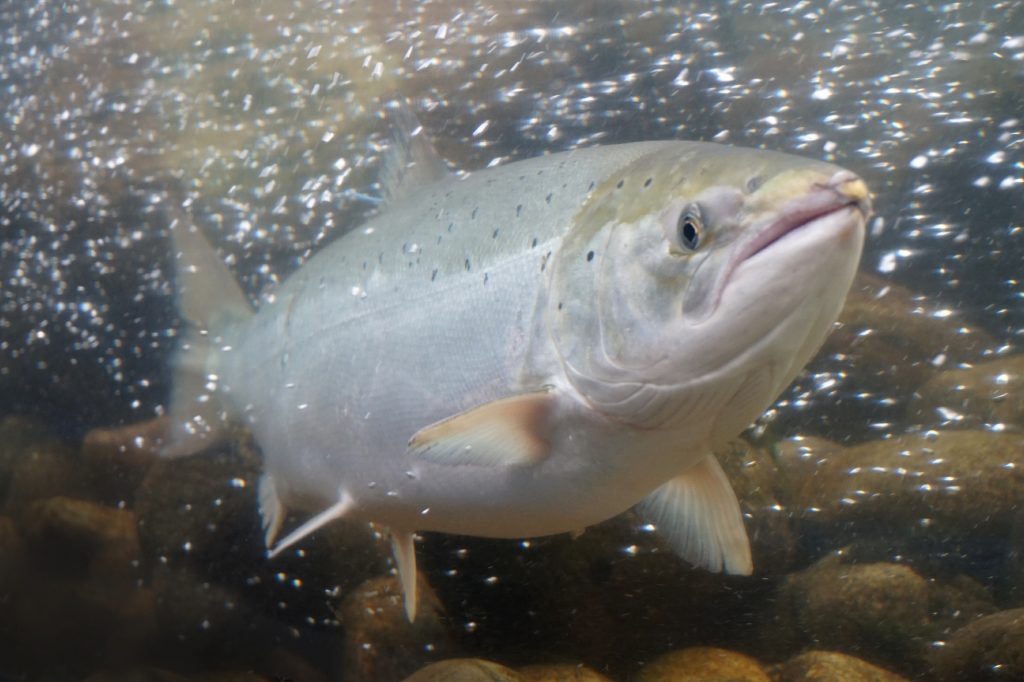
Study finds low risk of pathogen transfer from farmed to wild salmon
December 21, 2017
By
Liza Mayer
New research released by the federal government says the risks of viral disease transferring from Atlantic salmon farms located in the Discovery Islands area of British Columbia to wild sockeye making their way to the Fraser River is low.
 The report is the first in a series that will assess the risk of pathogen transfer associated with aquaculture activities to wild fish and the environment in the Discovery Islands
The report is the first in a series that will assess the risk of pathogen transfer associated with aquaculture activities to wild fish and the environment in the Discovery Islands The study looked specifically at Infectious Hematopoietic Necrosis Virus (IHNV), which commonly affects salmon and trout. Fish infected with the virus show abdominal distension, bulging of the eyes, skin darkening, abnormal behavior, anemia, and fading of the gills.
The Department of Fisheries and Oceans (DFO) said that current fish health management practices such as vaccination and eradication of infected fish help minimize the risk.
The report is the first in a series that will assess the risk of pathogen transfer associated with aquaculture activities to wild fish and the environment in the Discovery Islands, added the DFO.
Meanwhile, last month’s discovery of bloody fish processing waste being discharged from a plant near Campbell River, BC into the ocean has prompted the BC government to review fish-processing plants to ensure waste materials from the operations do not affect wild salmon stocks.
The BC Salmon Farmers Association (BCSFA) said it will participate in the government review. The association also formed a technical committee to review current practices in facilities processing farm-raised salmon.





